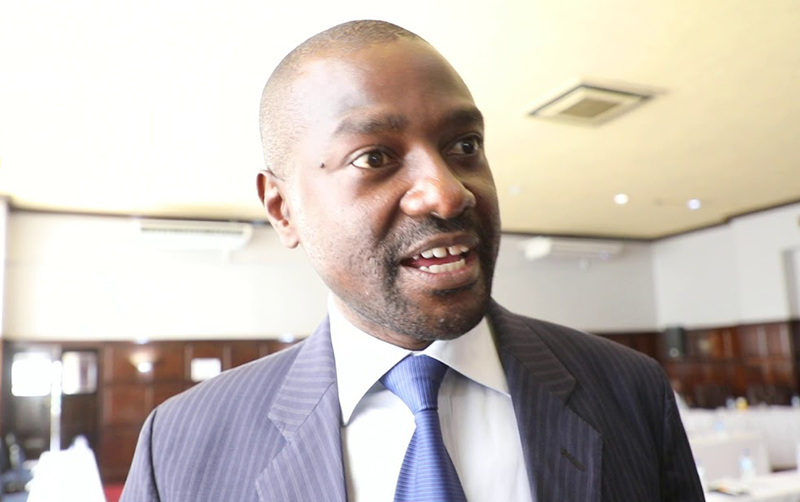
Last week, Finance and Economic Development minister Mthuli Ncube announced a review of the 2022 government spending pattern. Consumers, hard hit by a torrent of hyperinflation, had so many expectations. One of the hottest issues was the need to review the tax-free thresholds to give consumers respite. Out reporter, Lorraine Ndebele (LN) reached out to economist and former Zimbabwe National Chamber of Commerce (ZNCC) president Trust Chikohora (TC) to hear if the minister lived up to expectation. Here is how their discussion turned out…

LN: Tell us about your thoughts on the adjustments to the tax-free threshold.
TC: The tax-free threshold for employees has been reviewed. It has effectively been doubled in Zimbabwe dollars to try and improve disposal incomes. But I think that is inadequate because it is below inflation. Inflation is already above 250%, so just a mere doubling of the tax-free threshold falls far short of inflation. Improvement of disposable incomes will be inadequate. If you want to improve the levels of disposable incomes you need to increase the tax-free threshold to a level which at least meets inflation. This is far short of the level of inflation, so it is inadequate.
LN: What is your assessment of the new bonus tax-free threshold?
TC: On the bonus, tax-free threshold, which moved from $100 000 to $500 000, that is commendable because that is higher than inflation. Those kinds of levels of increase are the ones that were required for the ordinary pay as you earn tax-free threshold so that it would be in line with inflation or even higher than inflation in order to increase disposable incomes available to employees. The increase is very commendable. But the one on PAYE on a monthly basis falls far short of what was required.
LN: There were also adjustments to royalties for minerals like platinum. What is your assessment?
TC: The increase in royalties for platinum from January 1, 2023, from 2,5% to 5% is welcome because you see those are major revenue earners for the country. It is a source of revenue that can have a huge impact on government revenues and it will also result in the public benefiting from the mineral resources of the country. So, the doubling of those royalties will go a long way towards increasing the level of government revenue for the benefit of everybody. Lithium royalties will also be effected at 5% from January 1, 2023 and that will also help.
LN: Overall, what is your view of the supplementary budget?
- Chamisa under fire over US$120K donation
- Mavhunga puts DeMbare into Chibuku quarterfinals
- Pension funds bet on Cabora Bassa oilfields
- Councils defy govt fire tender directive
Keep Reading
TC: As expected, the budget was rehashed, and there is a supplementary budget which now is almost double the original budget. You will notice that the expenditure and the income have almost doubled and the budget deficit has been maintained at 1,5% of gross domestic product (GDP). So, the numbers have gone up but the budget deficit level has been maintained. Another notable issue is the reduction of the expected growth.
Growth in GDP has been reduced to 4,6% because of the global pressures and also the internal inflationary pressure and the erosion of the Zimbabwean dollar against the US dollar.
The currency depreciation has resulted in an unstable economic environment, which has also necessitated the revision of growth downwards. I would have thought that it could have been reduced further to as low as 4% or even below. I think it might be difficult to achieve the 4,6% growth especially on the back of a bad agricultural session.
LN: Prior to the new measures, public service workers were agitating for more pay. Are you happy with interventions on that front?
TC: We were also expecting that government employees will receive more cushioning in US dollar terms considering the levels of inflation and erosion of value of the Zimbabwe dollar.
We would have expected government to cushion employees further in US dollars, even with a small increase to move from the US$175 (monthly allowance) to total about US$200. So, the silence in terms of any level of cushioning was deafening and we were discouraged by that. I think civil servants were looking forward to some meaningful cushioning in that regard.
LN: We saw that there was a bit of movement on the Zimbabwe debt front?
TC: We are looking forward to the high-level date conference of all stakeholders. We welcome the appointment of the African Development Bank president as a champion for debt clearance. It is a significant development.
We are looking forward to the high-level conference or debt stakeholders conference so that all the silent issues regarding the clearance of the huge external debt of US$13 billion as reported in the budget are looked into.
- Follow us on Twitter @NewsDayZimbabwe







